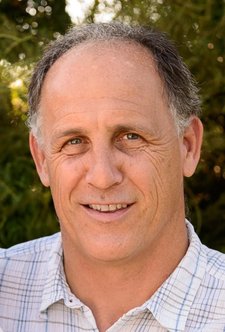
Carolyn McClanahan, Contributor
Feb. 23, 2024
Are you one of those people who regularly checks the multitude of websites listing out the banks offering the best interest rates ? Do you open and close savings accounts a couple of times a year to pick up higher yield to get the most bang for your buck? Do you move money to multiple Certificates of Deposits (CDs) so you can lock in higher interest rates? It might seem like a smart money move, however, there are drawbacks to this approach.

GETTY
What is the value of your time?
Moving bank accounts is fairly easy, but it takes time and time costs money. It is important to weigh whether the time invested is worth the effort.
For example, if you have $10,000 in your emergency fund making 4.75% interest at your current bank, and you notice that a new bank is now offering 5.5% interest, it seems smart to move your money.
Now do the math. That extra 0.75% interest you will make on $10,000 will be $75 per year. You open the new account, authenticate it, move the money, make sure the old account empties, and then close the old account. During tax season, you must remember to get the 1099 tax form from the old account. How much time does this take? In the smoothest of transactions, it would take a couple of hours total plus brain energy. You made about $37.50 per hour minus the taxes on the increase in earnings.
Sometimes there are problems with authentication. The authentication questions are sometimes crazy. For example, “Did I ever have a loan at Acme bank during the year 2014?” One wrong answer and you are sent into a black hole of being verified. This sucks more time from your precious life. Now your $37.50/hour is eroded and who knows how much time it will take to dig out of the rubble.
Before jumping around, just make sure the time it will take to move accounts is a good investment and you aren’t being offered teaser rates that will go down in the future. If you have a $100,000 emergency fund, the hassle likely will be worth it.
Does your family know where your money lives?
People have accidents and sometimes they die unexpectedly. Most people don’t have a will and they forget to list beneficiaries on their accounts. With accounts being housed mostly online, there may be no paper trail for your family to discover where you keep all your money.
It is a good practice to make sure your family has access to a list of your assets and the beneficiary forms for your accounts. This will save a load of angst and money if you die or become incapacitated. If you are moving accounts frequently to chase yield, keeping up with your asset list and beneficiary forms is even more important. There are currently 30 million people who have outstanding unclaimed assets and you don’t want to be one of them.
If you don’t have a beneficiary listed on a savings account or CD held only in your name, it will go through probate for your family to claim it. This takes time and money depending on the size of the account and the state where you live. For example, in Florida, we had one client who had moved $100,000 to a CD that was previously in a money market with a beneficiary designation. The family and I had no idea she had done that. When she died, the bank would not tell us if there was a beneficiary and if there was a beneficiary, they would let the beneficiary know after we turned in the death certificate. She had no other assets that would go through probate. The attorney said probate costs would be about $7,000. That was painful. Thankfully, she did end up having a beneficiary listed on that account. It was not fun being kept in the dark on the status of that money for a couple of weeks.
If you have a traditional brokerage account, consider holding your savings in a high yield money market account that is part of your traditional brokerage account. This can eliminate having an extra savings account. Make sure you have a beneficiary listed on that traditional brokerage account!
Chasing yield to improve your savings can be a worthwhile effort and it does have drawbacks. Make sure that the time you invest in moving money around is worth the effort. And most importantly, make sure you list beneficiaries and your family knows where your money is located. If you are going to put in the work to make more money, make sure you or your family get to keep those hard-earned dollars.
© 2024 Forbes Media LLC. All Rights Reserved
This Forbes article was legally licensed through AdvisorStream.


